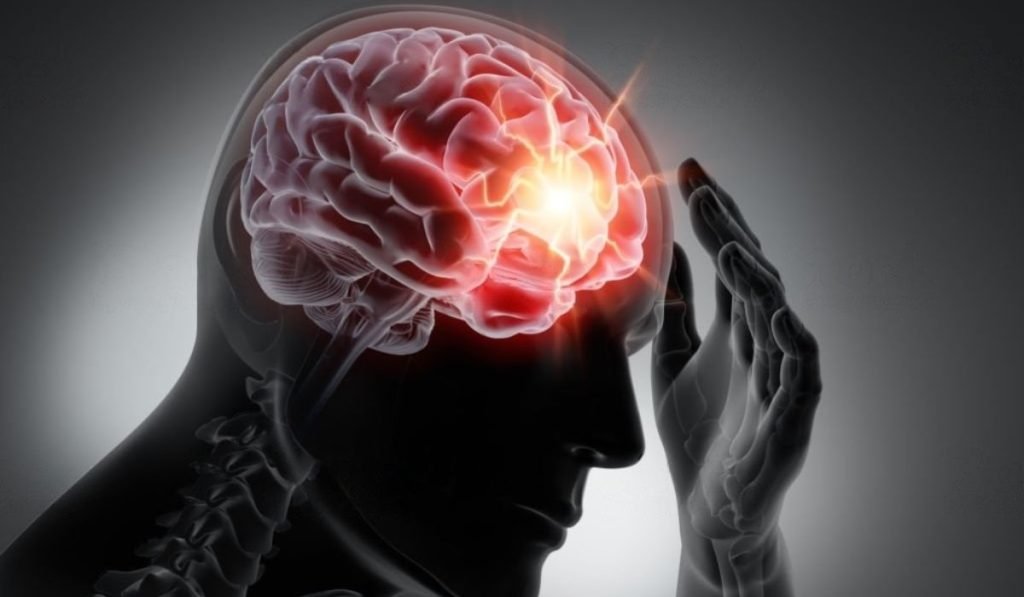The Power of Gratitude and Healing: Exploring the Meaning and Science behind a Positive Mindset

- Gratitude is a practice that can transform mindset and lead to improved mental and physical health.
- Expressing gratitude before bed can lead to better sleep and more positive dreams, while gratitude therapy focuses on developing a sense of gratefulness towards oneself, others, and the world around us.
- Regularly practicing gratitude exercises can lead to increased feelings of happiness and improved mood, as well as reduced rates of depression and anxiety.
- Gratitude encourages a more mindful approach to daily life, promotes feelings of satisfaction and contentment, and can enhance relationships with others and increase prosocial behavior.
You wake up to the sound of birds chirping and sunlight peeking through your curtains. You stretch your limbs and take a deep breath, feeling grateful for another day. But what does gratitude really mean? And how can it have such a powerful impact on our well-being?
In this article, we will delve into the meaning of gratitude and explore its effects on the brain. We will also examine how practicing gratitude can help alleviate depression and anxiety, and how it is used in therapy.
Finally, we’ll look at the science behind gratitude – from neurochemical processes to social psychology – to understand why it has become increasingly popular as a tool for promoting positive mindset and healing.
Whether you are someone who already practices gratitude or simply curious about its benefits, read on to discover the power of this simple but profound practice.
The Power of Gratitude and Healing

Gratitude Meaning
You might be wondering, what exactly does gratitude mean? Well, simply put, it’s the act of acknowledging and appreciating the good things in your life, big or small.
It’s about recognizing the positive aspects of your life and feeling thankful for them. Gratitude is not just an attitude or emotion; it’s a practice that can transform your mindset.
Gratitude has been linked to many benefits such as improved mental health, increased happiness levels, and better physical health.
According to research, practicing gratitude regularly can lead to reduced stress levels and lower rates of depression and anxiety.
Additionally, people who practice gratitude tend to have stronger relationships with others due to their ability to appreciate and acknowledge the good qualities in people.
Although it may seem like a simple concept, practicing gratitude takes effort.
It involves actively seeking out positive experiences in your day-to-day life and taking time to reflect on them.
This could be as simple as writing down three things you’re grateful for each day or expressing appreciation towards someone who’s made a positive impact on your life.
By incorporating gratitude into your daily routine, you can start experiencing its powerful effects on both your physical and mental well-being.
Effects of Gratitude On The Brain

Did you know that when you express appreciation, your brain releases dopamine and serotonin, which can improve your mood and increase feelings of happiness?
Gratitude has a powerful impact on the brain. It activates the prefrontal cortex and stimulates the hypothalamus, two areas responsible for regulating emotions.
Studies have shown that gratitude can boost overall well-being by reducing stress levels and improving sleep quality.
In fact, expressing gratitude before bed has been shown to lead to better sleep and more positive dreams.
Additionally, people who regularly practice gratitude tend to experience less depression and anxiety. Gratitude rewires our brains for positivity by shifting our focus from negative thoughts to positive ones.
By acknowledging the good in our lives, we create a ripple effect of positivity throughout our minds and bodies.
So take a moment each day to reflect on what you’re grateful for – it could have a profound effect on your mental health and well-being.
Gratitude And Depression
One may find relief from symptoms of depression by incorporating a daily practice of expressing gratitude.
Depression is a mental illness that affects millions of people worldwide and can disrupt everyday life. However, research has shown that practicing gratitude can have positive effects on brain chemistry and improve overall mental health.
Studies have found that individuals who practiced gratitude regularly had lower levels of depressive symptoms compared to those who did not.
In one study, participants were asked to write down five things they were grateful for weekly for 10 weeks. After the study, the participants reported feeling happier and less depressed than they did before starting the practice.
Gratitude helps shift focus away from negative thoughts and emotions associated with depression towards positive ones. It also encourages a more mindful approach to daily life and promotes feelings of satisfaction and contentment.
Incorporating a daily gratitude practice into your routine may help alleviate symptoms of depression by improving overall well-being and increasing positivity in your life.
Gratitude And Therapy
Incorporating gratitude therapy into your mental health routine can have a significant impact on your overall well-being and emotional state.
Gratitude therapy is a form of psychotherapy that focuses on developing a sense of gratefulness towards oneself, others, and the world around us.
The goal is to help individuals shift their focus from negative thoughts and emotions to positive ones through practicing gratitude.
Studies have shown that practicing gratitude can improve one’s mood, increase feelings of happiness, decrease symptoms of depression and anxiety, and enhance overall life satisfaction.
According to research conducted by Dr. Robert Emmons at UC Davis, people who practice daily gratitude exercises experience more joy, enthusiasm, and other positive emotions compared to those who do not engage in such practices.
Incorporating gratitude exercises into your daily routine can be done in various ways such as keeping a gratitude journal or expressing appreciation towards others verbally.
By focusing on what you are thankful for rather than dwelling on negative thoughts or experiences, you can cultivate a positive mindset that will lead to improved mental health outcomes.
So why not give it a try?
Take some time each day to reflect upon what you are thankful for- you may be surprised at how much of an impact it can have.
| Examples of Gratitude Exercises | Benefits |
|---|---|
| Writing down three things you’re grateful for each day | Improved mood |
| Expressing gratitude towards someone else through writing or speech | Increased feelings of happiness |
| Reflecting on past experiences with appreciation rather than regret | Decreased symptoms of depression and anxiety |
| Keeping a ‘gratitude jar’ where you write down moments throughout the year that made you feel grateful | Enhanced overall life satisfaction |
Science of Gratitude
Discover how being thankful can improve your well-being and emotional state. Research has shown that regularly practicing gratitude exercises can lead to increased feelings of happiness, improved mood, and decreased symptoms of depression and anxiety. Gratitude isn’t just a feel-good concept, but it also has scientific backing.
Studies have found that expressing gratitude can activate the brain’s reward center by increasing dopamine levels, which helps regulate emotions such as pleasure and happiness. Furthermore, gratitude can also enhance our relationships with others.
Couples who expressed gratitude towards each other experienced an increase in relationship satisfaction, according to a study conducted at the University of California.
Moreover, expressing gratitude towards others also increases prosocial behavior, i.e. helping behaviors directed towards others without any expectation of reward.
Cultivating a grateful mindset doesn’t necessarily mean ignoring negative experiences or suppressing negative emotions.
Instead, it involves acknowledging difficult emotions while choosing to focus on positive aspects of life.
By doing so, individuals can experience a shift in perspective leading to better mental health outcomes such as reduced stress levels and improved overall well-being.
Gratitude Research: Scientific Study Shows Gratitude Treats Heart Failure

Did you hear about the recent study conducted by the American Psychological Association? They decided to put people with asymptomatic heart failure from previous heart attacks to a spiritual test. And guess what they discovered? The results were absolutely astonishing!
The study involved 186 participants, all of whom had experienced a heart attack at some point in their lives. These individuals were given a simple task: keep a gratitude journal and practice being grateful for life every single day.
The researchers wanted to see how this practice would affect their mental and physical health, especially when compared to those who were dealing with more depressive states, fatigue, and greater inflammation.
Now, brace yourself for the amazing findings. The study revealed that expressing gratitude and practicing gratitude for the positive aspects of life can actually lead to improved mental and physical well-being for these heart patients.
Can you believe it?
They discovered that higher levels of gratitude were associated with better mood, improved sleep quality, reduced fatigue, and even lower levels of inflammation.
Paul J. Mills, the lead author of the study and a professor at the University of California, San Diego, said, “We found that more gratitude in these patients was associated with better mood, better sleep, less fatigue, and lower levels of inflammatory biomarkers related to cardiac health.”
In other words, gratitude was like a powerful tool in the arsenal of those practicing spirituality, yielding measurable and positive results.
But wait, there’s more. The researchers also concluded that gratitude alone can actually help reduce the risk of continued heart failure for those who have experienced a heart attack.
Mills added, “Those patients who kept gratitude journals for those eight weeks showed reductions in circulating levels of several important inflammatory biomarkers, as well as an increase in heart rate variability while they wrote. Improved heart rate variability is considered a measure of reduced cardiac risk.”
We’ve all heard that gratitude is a supportive tool for feeling a sense of connection and overall well-being. And if you’ve ever kept a gratitude journal for a couple of weeks, you’ve probably experienced the noticeable improvements in your own life.
Focusing on what’s working for you, rather than what’s working against you, has been proven in positive psychology to greatly enhance cognitive function, mood, and the ability to spot opportunities and pursue them.
Interestingly, gratitude was often dismissed as being unimportant to physical health until now. But with this study, we now have solid evidence that spirituality and gratitude can actually improve heart health.
Mills sums it up nicely, stating, “It seems that a more grateful heart is indeed a more healthy heart, and that gratitude journaling is an easy way to support cardiac health.”
Spirituality is now being recognized as a valuable treatment for various conditions, and studies like this one provide substantial proof and certifiable evidence for what many have known and shared for ages.
Living a grateful and spiritual life isn’t just good for the soul; it’s good for your heart, both literally and figuratively.
Frequently Asked Questions
How can gratitude be incorporated into daily routines to maximize its benefits?
Maximize gratitude’s benefits with a daily routine. Start with a mantra, list three things you’re grateful for, and reflect on their positive impact. Research shows this practice increases happiness and overall well-being. By making gratitude a habit, you can rewire your brain to focus on the positive and cultivate a more optimistic outlook on life.
Are there any negative effects of practicing gratitude excessively?
Practicing gratitude excessively may lead to feelings of guilt, pressure to always be positive, and ignoring negative emotions. It’s important to balance appreciation with acceptance of all emotions for overall well-being.
Can gratitude be used as a form of treatment for individuals with severe depression?
Yes, studies show that practicing gratitude can help alleviate symptoms of severe depression. By focusing on positive aspects of life and cultivating a sense of appreciation, individuals can improve their mood, increase resilience, and enhance overall well-being.
How does gratitude compare to other forms of therapy such as cognitive-behavioral therapy or medication?
Gratitude is not a replacement for therapy or medication, but it can complement them. It helps you focus on the positive aspects of life and enhances your well-being. Using gratitude alongside other therapies could lead to better outcomes.
Is there a specific type of gratitude practice that is more effective than others in promoting healing and positivity?
To promote healing and positivity, there isn’t a one-size-fits-all gratitude practice. Experimenting with various methods – like journaling, meditation, or expressing thanks to others – can help you discover what works best for you.
Bottom Line
So, you’ve learned about the power of gratitude and healing. By now, you understand that gratitude is more than just saying thank you. In fact, it has a profound effect on the brain and can even help alleviate depression.
But what does all this mean for you? Think of your mind as a garden. Just like any garden, it needs to be tended to in order to flourish. Gratitude is like the fertilizer that helps your mind grow and thrive. With practice, cultivating a positive mindset through gratitude can lead to a happier and healthier life.
So why not start today?
Take some time each day to reflect on what you’re thankful for, no matter how big or small, and see how it transforms your outlook on life.
Remember: healing begins from within. By shifting your focus towards gratitude, you’re taking an active step towards improving your mental health and overall well-being. Keep nurturing that garden of yours with positivity and watch as it blooms into something beautiful.
Read Next
